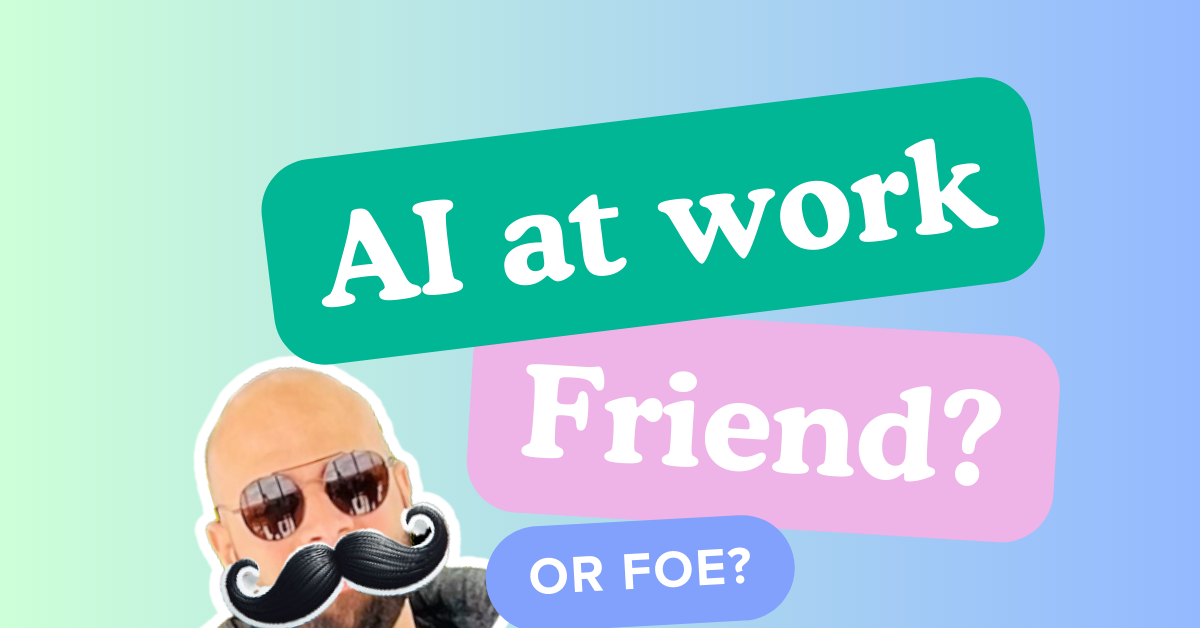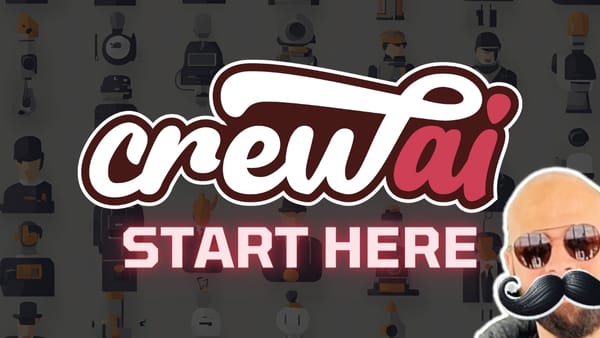How you can use AI to your advantage as it starts to replace many jobs
As Artificial Intelligence is rapidly integrated into the workplace, those who embrace the change will thrive, while others who resist will be left behind.

Last week, I was talking about artificial intelligence and the recent advancements in the field with some acquaintances over dinner. Specifically, I was going over the huge impact the technology is having on our everyday lives.
They don't know...
What's interesting is that some non-tech-savvy people are completely unaware that AI is already changing everything we do, every day, in every sector.
During the conversation, one person was saying how it's still too early to tell how exactly AI will affect businesses and that the major shift in how we work may or may not come within 5, 10, or even 20 years.
I was like, okay... But in the back of my mind, I was wondering if this person even knew that ChatGPT (for example) gets about 1.7 billion visitors per month (that's right, almost two billion visits a month) according to Similarweb.
Nowadays, and with so many AI tools the old saying "there's an app for that" could be easily updated to "there's an AI for that". There's a website called theresanaiforthat.com that lists different AI apps and services.
It's a fact: Your job is at risk
A February 2023 survey by Resume Builder found that around 25% of companies successfully shaved off between 50,000 and 70,000 USD by making use of ChatGPT. What’s even more interesting is that 11% saved more than 100,000 USD since introducing ChatGPT to their workflow.

And that's February 2023. It's safe to assume that these numbers have only increased, significantly.
Businesses want more AI and less people
Arvind Krishna, CEO of IBM said that 30% of back-office functions could replaced by AI within the next 5 years. He also said his company plans to replace 7,800 jobs with AI and to pause hiring for certain roles.
StackOverflow announced a 10% workforce layoff recently, many believe this is due to AI playing a more prominent role within the company.
Even Microsoft's LinkedIn announced 700 employee layoffs potentially due to AI taking more and more back-office jobs.
AI is even disrupting creative jobs
I strongly believe that AI will shape every business function. Even its generative capabilities in creative fields are astonishing. A few years ago, people would have thought you were crazy if you described what AI is capable of achieving today.
Here are a few examples of how AI is disrupting creative industries:
- Graphic Design: Tools like DALL-E, Microsoft Designer, Midjourney, and many others can already generate realistic photos, logos, and various other designs given a simple prompt already replacing the need to hire a graphic designer, especially for bootstrapping founders.
- Video Generation: AI tools like Synthesia offer text-to-video generation, achieving what used to take hours to produce in a few minutes.
- Music and Sound: I know what it takes to create music and was blown away by Stable Audio's ability to generate high-quality music given just a prompt.
Here's one of the earliest posts on this blog where I share how I think AI will transform digital content soon:

So, will AI replace you?
Regardless of what you think about this, a lot of people are worried. Take a look at the Google Trends graph below that clearly shows an increase in queries related to the topic of "Will AI replace...":
People worried about AI replacing their jobs often try to find answers on Google Search. Here are some popular examples of such searches:
Will AI replace programmers?
The short answer is: No, it won't. Sure, tools like Github Copilot and ChatGPT can write functioning code, but programmers perform a variety of tasks much more efficiently than AI, such as research, problem-solving, and algorithm design.
I've been writing code for years and I experienced firsthand how AI can help developers write common algorithms, unit tests, and boilerplate code more efficiently.
Those who decide not to use AI will find themselves at a major disadvantage compared to those who do.
⚡ AI tools for programmers
- Cursor: AI-first code editor
- GitHub Copilot: AI programming assistant
Will AI replace analysts?
AI will undoubtedly revolutionize any role involving analysis. Given that AI can identify insights and trends much faster than we can, it will lower business costs while providing value.
So, will AI replace analysts? Yes, some. Those who do not apply human judgment like ethical decision-making, understanding human emotions, and making use of AI analysis and automation to improve their critical thinking will no longer provide much value to the business.
⚡ AI tools for analysts
- Polymer: AI-powered Business Intelligence (BI)
- DataSquirrel: AI-powered Business Intelligence (BI)
Will AI replace translators?
AI in translation is not new, one of the most popular applications Google Translate uses deep neural networks (Google Neural Machine Translation) to increase the fluency and accuracy of its output.
So, will AI replace translators? As with other roles, the answer is: Yes, but not all translators. While AI is capable of doing most (if not all) basic and repetitive translation tasks it is not better than humans when it comes to interpreting cultural context, emotional subtleties, idioms, and dialects.
AI has already replaced translators for most repetitive and basic translation tasks, however, translators that use AI will easily handle straightforward translations, while focusing on more complex and nuanced language tasks.
⚡ AI tools for translators
Will AI replace writers?
Large Language Models (LLMs) such as ChatGPT, Bard, and others, can produce reports, articles, books, manuals, and even creative writing given a few prompts. This is already having a major impact on writing as a whole and AI is becoming increasingly the author of massive amounts of text online, and offline.
This however will make writers who do not focus on triggering human emotion or offering their unique perspective redundant as anyone is now able to use AI to generate text. Those who make it personal, invoke emotions, and focus on a specific genre and style will stay relevant.
⚡ AI tools for writers and content creators
Final thoughts
So, will machines replace you? The short answer is: No, unless you do not use AI to your advantage. People who do not adapt and learn to use AI will become just like people who do not know how to use the internet today.
Intelligence is the ability to adapt to change. - Stephen Hawking
Companies will almost always opt for a lower cost / higher yield option so you can bet that as soon as AI can do what you do, you'll no longer be necessary. My advice to you is to make sure you teach yourself how you can use existing and upcoming AI tools to your advantage, today. One way is to subscribe to this blog for free!
Thanks for reading! Please become a member if you're not one already (it's free) and follow me on X for more content and updates.






